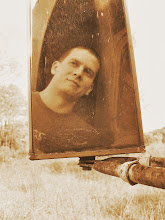In the past five years I have been privileged to travel around the state of Missouri, and beyond, to countless different churches. I have participated in dozens of Disciple Now weekends at various locations, filled the pulpit in numerous houses of worship, visited churches in the city of Cleveland ranging from traditional to contemporary to hip-hop, taken on interim roles in three churches, and am currently employed at a church as a youth pastor. I have seen countless church services from the pew and from the pulpit. And even with the church-hopping mentality of today’s church-goers, I have been a part of more churches than most people ever will. Yeah, I get around.
And with all these places I have gone, there was one thing I had to learn very quickly: no one does it the same. If you visit many churches you will realize this too; despite the similarities we find, no two churches are the same. And, as I visited all these churches, I began to be amazed at how rigid some people have become in their way of “doing church.” With so many Christians these days it’s “My way or the highway. And highways are unbiblical. Remember, Jesus said the way is wide that leads to destruction.”
I blame much of this mentality on the New Testament Church. Well, that may be a bit unfair. I blame it on the idea of the New Testament Church. This is a concept I have heard talked about in many different places; it is an ill-defined idea of some sort of perfect, coherent, super-church where Peter is the pastor, Paul is the Sunday school director, and John is the minister of music. And we glorify this “Church” to the point of thinking, “Oh, if I could only have been a Christian back when Paul was around! Not when he started passing the torch to Timothy, that kid had no moxie. Give me Paul any day.” And we look around at our churches and we judge them, saying, “My church is a ‘New Testament Church.’ Sure, you may attend a church, but mine is holier.” or “This church has some problems. They would never have made it if Peter was still around. Most likely, they’d all be lion food; except God would probably strike them dead like Ananias and Sapphira before the lions got to them.”
What we sometimes forget, I think, is that this “New Testament Church” was actually why we have the largest portion of the New Testament. Think about it; how much of the second half of the Bible would we have if Paul had not been reprimanding the church for something stupid they were doing? A good chunk of the New Testament is devoted to telling off the New Testament Church. Far from perfect, it was a group of people still trying to figure out how to love God, and they messed up plenty along the way.
Don’t get me wrong, I think they had a lot of stuff right; and we have a lot to learn from the way they did things. But the New Testament Church, the REAL New Testament Church, was not successful because they had the order of service down pat. They didn’t grow because they had great facilities or programs. In many cases, it wasn’t even because of strong leadership. The New Testament Church was successful because it was filled with people who wanted to learn about God and show Him to others. It wasn’t the way they “did church;” it was the way they left church. It wasn’t their order of service; it was their obedience in service.
So, the next time you look around at your church and think, “I don’t like the way they do that. I bet there’s a better church out there; a more ‘New Testament’ kind of church.” maybe the problem isn’t with your church but you. There is no perfect church, not even in the New Testament; stop looking for it. Instead, work where God has put you so that your church will begin winning territory for the Kingdom of God.
What about you? Are you at a "New Testament Church"? Are you looking for one? Are you helping create one?
